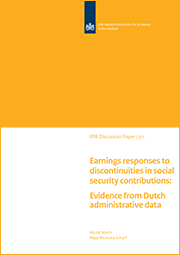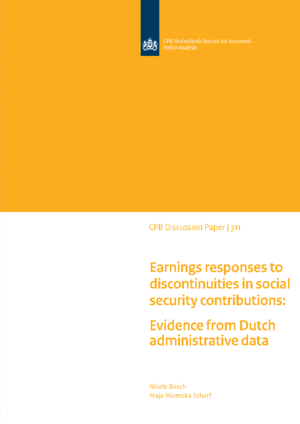Earnings responses to discontinuities in social security contributions: Evidence from Dutch administrative data

We consider three earnings concepts, four types of contributions and five thresholds at which marginal rates change. The basic idea is that a discontinuity in the marginal SSC rate should cause a discontinuity in the distribution of at least one of three earnings concepts: labour costs, gross earnings and net earnings. We use a rich administrative dataset containing observed payments on most SSCs for the entire working population for the years 2006-2012. Our finding that the density of gross earnings is smooth is an indication of small behavioural responses and is consistent with the results in recent empirical studies that attribute this to the complexity of the tax system, small changes and non-salience. Smoothness of gross earnings challenges the standard incidence theory prediction of full shifting of SSCs to employees. New and more puzzling is the finding of a smooth distribution of both net earnings and labour costs. The smooth distribution of these earnings concepts renders the results on incidence inconclusive. This lack of ‘deterministic’ discontinuity can mainly be explained by measurement errors resulting from the complexity of the institutional system and the rather small changes in marginal rates. A general finding of this paper is that this kind of cross-sectional analysis requests high quality data on SSCs which are rare.
